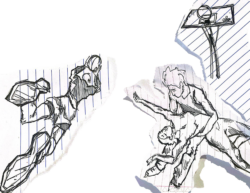“So long as one is happy, one can endure any discipline: it was unhappiness that broke down the habits of work … I became aware that our love was doomed: love had turned into a love affair—with a beginning and an end.”
—The End of the Affair, Graham Greene
Graham Greene’s The End of the Affair is a painfully emotional account of every human extreme in the form of a memoir, and is introduced as a record of hate by its narrator Maurice Bendrix. As the title suggests, it is a recounting of Maurice’s love affair with the married Sarah Miles, but it is much more than a love story. Greene flawlessly links the intensity of hate and the uncertainty of faith to the nuanced intricacies of love—a love that is selfish, jealous, mighty, beautiful, and ultimately tragic. Greene takes on this daunting subject and perfectly captures the lack of control, the selfishness, and the elation of the greatest human mystery without professing to fully understand it.
While I do not want to make the mistake of pretending I know all of love’s forms and complexities, the relationship between Sarah and Maurice leads me to think that love oscillates over time on a spectrum between selfishness and selflessness. It seems that most relationships begin at the most selfish end, where both individuals love each other for the way the other makes them feel physically and emotionally, and where they love the fireworks of two separate human universes colliding more than anything. In the most seasoned and time-worn relationships of elderly couples, one sees love on the other end of the spectrum, where their love for each other has transcended their individual persons, where the success of their relationship comes almost from a competition of selflessness between the two, and where love is represented by an absolute adoration of the partner’s being. Every day of the average relationship falls somewhere in between the two extremes.
Some days you are more inclined to indulge in the affection that your partner has tacitly agreed to provide, while other days see a different love, one that involves swaddling your partner in everything you have, to protect and hold together everything they are. The second kind is infinitely more challenging, requiring that you leave the safety and comfort of your own universe to bridge the gap between yours and theirs. In this no-man’s-land, you stand uneasily at the mercy of your partner, who can choose to reject or take advantage of your love. It is not surprising that many people do not make it to this point. Maybe this entrenchment is the reason couples that seem to be, and often are, undeniably in love eventually break up. A love that does not mature into this stage fails to satisfy the individuals who grow to expect a different or more complex companionship as they themselves mature. This feeling of dissatisfaction seems to be the point at which love, with its untapped potential, turns into a mere love affair, which is exactly what happens to Maurice Bendrix’s relationship.
Love, to me, is like a shifting two-pieced puzzle. Each piece must not only extend a part of itself into the other, but also continually reform to match its ever-changing counterpart. It would appear that the trick is to understand how the pieces have shifted over time and to actively try to put the new puzzle back together. Putting a chunk of one’s soul into someone else’s hands is ultimately the scariest and most exhilarating thing one can do, but everything from the way they hold your soul to the journey they take it on makes the risk the most worthwhile thing in life, often leaving you drunk on selfish indulgence and selfless discovery.






